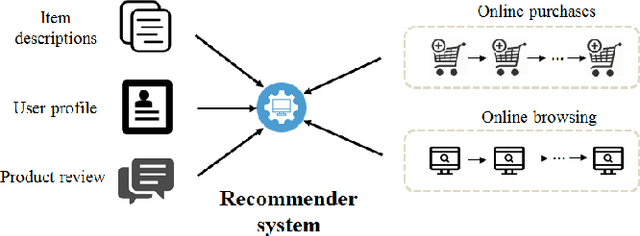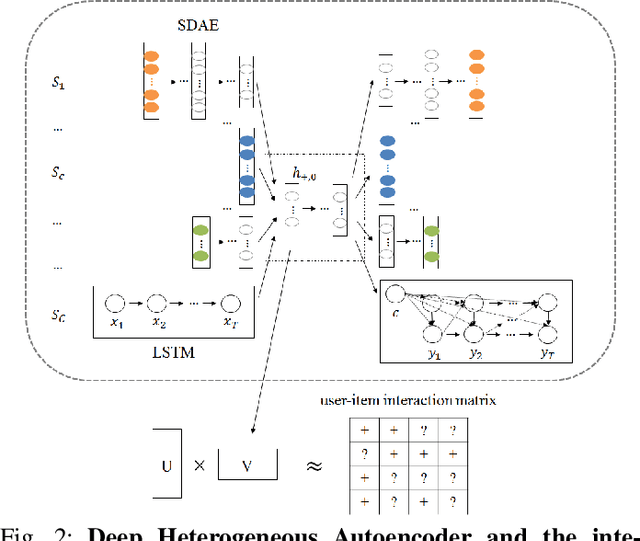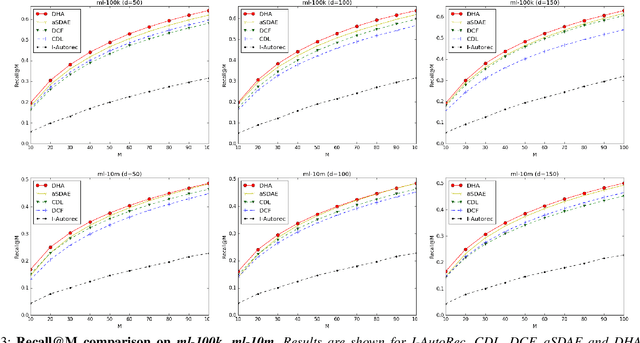Deep Heterogeneous Autoencoders for Collaborative Filtering
Paper and Code
Dec 17, 2018



This paper leverages heterogeneous auxiliary information to address the data sparsity problem of recommender systems. We propose a model that learns a shared feature space from heterogeneous data, such as item descriptions, product tags and online purchase history, to obtain better predictions. Our model consists of autoencoders, not only for numerical and categorical data, but also for sequential data, which enables capturing user tastes, item characteristics and the recent dynamics of user preference. We learn the autoencoder architecture for each data source independently in order to better model their statistical properties. Our evaluation on two MovieLens datasets and an e-commerce dataset shows that mean average precision and recall improve over state-of-the-art methods.
 Add to Chrome
Add to Chrome Add to Firefox
Add to Firefox Add to Edge
Add to Edge